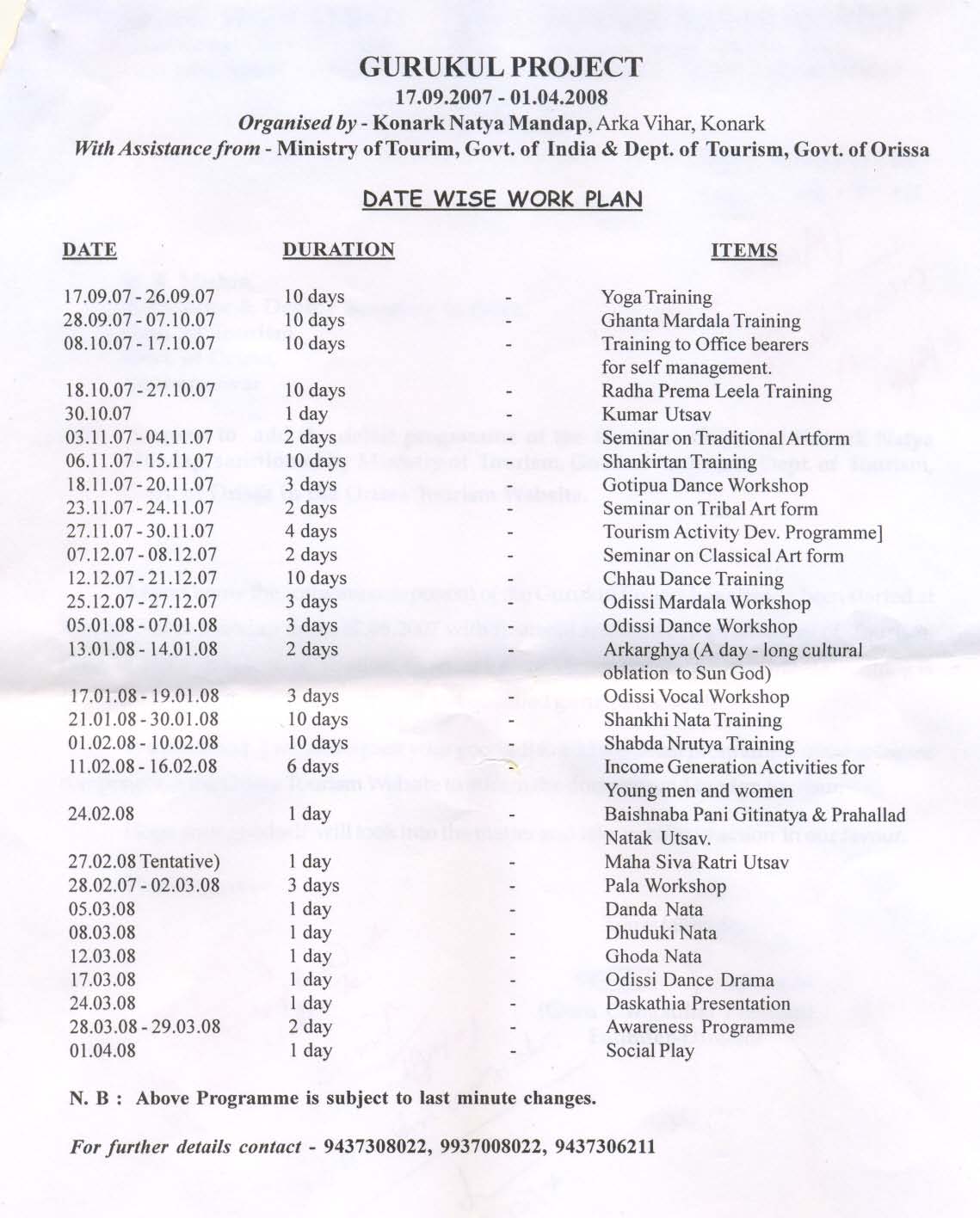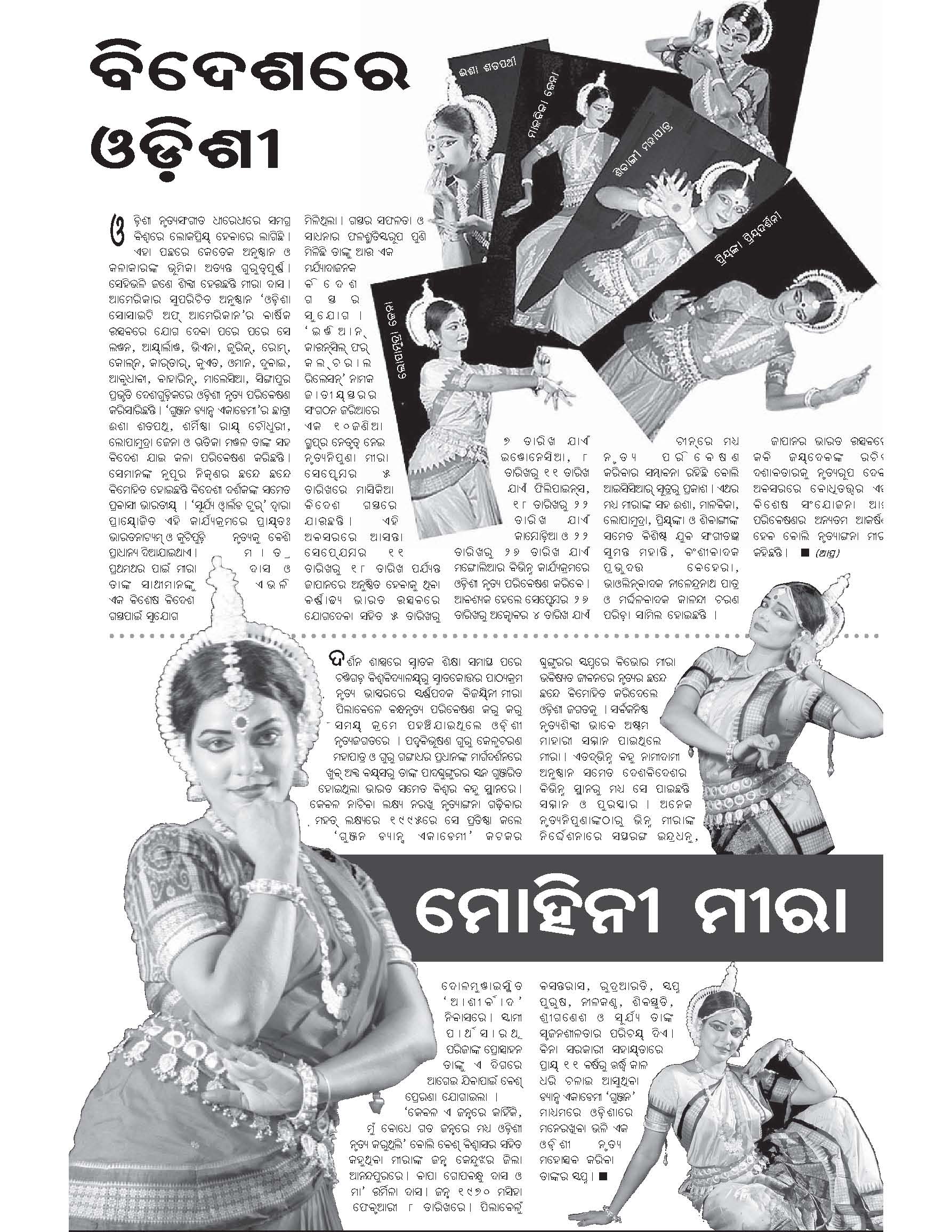Debabrata Mohanty pays tribute to Guru Gangadahara Pradhan in Indian Express
Konark Festival, Odisha Culture, Odisha personalities, Odissi 1 Comment »Following is from http://www.indianexpress.com/news/end-of-a-dance-odyssey/698852/0.
Had it not been for his parents, Gangadhar Pradhan, renowned exponent of Odissi, who died at a private hospital in Bhubaneswar last Monday, would perhaps never have chosen the dance form. Moments after he was born at Parikul, a remote village of Puri district in 1948, Gangadhar did not cry, leading to fears that he may be stillborn. Gangadhar’s peasant father, Muralidhar Pradhan, and mother, Dwitika Devi, had already lost their three sons and two daughters earlier. Muralidhar vowed that if this child survived, he would serve the presiding deity, Lord Balunkeshwar, at Dimirisena village in Puri district, for five years.
Gangadhar survived, and at the age of six years he was sent to the temple at Dimirisena, where he went through a rigorous training in Gotipua (literally meaning one boy) dance, under the direct guidance of Pandit Chandrasekhar Pattnaik.
If the late Kelucharan Mohapatra made Odissi popular to the outside world, Gangadhar, one of his first disciples, was instrumental in carrying the dance form forward and giving it institutional support. A purist to the core like his guru, Gangadhar honed his skill at playing the mardal (a percussion instrument) by learning from Singhari Shyama Sundar Kar and Guru Banamali Maharana. He learnt the text of Odissi dance from well-known scholar Dhirendra Nath Patnaik. His alma mater, Utkal Sangeet Mahavidyalaya, also played a significant role in shaping Gangadhar, who matured into a dancer-choreographer of great sensitivity and skill.
Gangadhar was the proverbial sculptor, hammering away day and night to keep the dance form robust and popular. “As a teacher, he never ran away from Odissi’s pure traditions. He was always grammatically correct and would not do anything that messed up the basic fabric of the dance form,” said noted danseuse Kumkum Mohanty.
While Kelucharan crafted his own style, Gangadhar did not follow any particular style. But it was his vision to establish Odissi as a strong art form that distinguished him from other Odissi legends.
In the late ’70s, the life of a performing artist, particularly that of a dancer, was difficult to say the least. But instead of giving up, Gangadhar came up with the idea of starting an institution. In 1975, he started the Odissi Dance Academy, later re-christened as the Orissa Dance Academy (ODA).
The academy in Bhubaneswar is the single biggest repository of Odissi dance talent, having produced over 1,000 renowned dancers so far. “In the world of Odissi, you pick any known dancer today and chances are that he/she would be a product of the ODA,” says dance critic Shyamahari Chakra. Not surprisingly, there are 35 Odissi dance schools in the world affiliated to the ODA. But his unceremonious exit a few years ago hurt him badly.
Always on the lookout for ways to popularise Odissi, Gangadhar hit upon the idea of expanding its reach through festivals. One thing that always bothered him was that Odissi dancers in Orissa did not have a platform in their own state. So, in 1986, he started the first Konark Dance & Music Festival at the Konark Sun Temple and formed the Konark Natya Mandap. The Konark Natya Mandap is now an international centre where training in Odissi, Gotipua, Chhou, Pala, vocal and instrumental music are imparted to youngsters. Several years ago, Gangadhar started the Dhauli Dance Festival. Besides these, he also started several small dance festivals such as Nimapara Dance Festival, Chilika Dance Festival, Kalinga Kala Utsav, Basanta Utsav, Boita Bandana Utsav, Bhaunri Utsav, etc. The annual Chitralekha Dance Academy Festival in Canada was also held under his stewardship.
Danseuse Aruna Mohanty, one of his first disciples, says Gangadhar was a visionary. “He found teaching Odissi his true calling,” said Mohanty.


